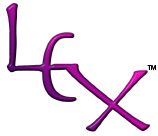An Inaugural Post
LEX has moved here from another hosting domain; the first entry (below) was originally posted on March 28, 2010.
* * *
LEX strives to offer linguistic information for language teachers and learners. Linguistic information means scientific information about language, information that can be shown with evidence and deductive reasoning. No hunches, guesses, or tricks here, just linguistically-informed explanations about how the English language works.
For this inaugural post, this beginning, I’ll try to give you an idea of the linguistic and logical tools I use to understand how language works. What can you really expect from this blog? To demonstrate, let’s consider what the word inaugural really means.
Most of us would go to a dictionary to answer that question. My Mac dictionary gives me the following information:
in・au・gu・ral |inˈôg(y)ərəl|
adjective [ attrib. ]
marking the beginning of an institution, activity, or period of office: his inaugural concert as music director.
noun
an inaugural speech, esp. one made by an incoming U.S. president.
• an inaugural ceremony: the ball before the inaugural.
ORIGIN late 17th cent.: from French (from inaugurer ‘inaugurate,’ from Latin inaugurare) + -AL .
Okay, so inaugural means ‘beginning.’ If I read all the way through the etymological information, I learn that it’s probably related to the word inaugurate. That makes sense — a president is inaugurated at the beginning of his or her tenure, and holds an inaugural ball.
But is that all? Why does inaugural mean ‘beginning’? Are inaugural and inaugurate the only words in that morphological family? To answer this question, it’s time to use some logic. First, I look to see if there are any prefixes or suffixes I can peel off, so that I can try to figure out the base element of the word. I recognize <in-> and <-al> and <-ate> as likely contenders. That would leave me with a possible base of <augur>.
Now it’s time consult some other resources to test my hypothesis. I frequently use UK mathematician Neil Ramsden’s Word Searcher and sometimes More Words to look for more words that might share the same base element. On Ramsden’s site I enter <augur> and I find the following list:
augur, augured, auguries, auguring, augurs, augury, inaugural, inaugurate, inaugurated, inaugurates, inaugurating, inauguration, inaugurations
Hmm … not sure what <augur> means. Isn’t that some kind of a tool? Back to some resources I go. My dictionary tells me that an <auger> is a tool, and the unrelated <augur> means ‘to portend a good or bad outcome.’ Sounds kind of like an omen. I head to John Ayto’s Dictionary of Word Origins and find this:
“In Roman times, an augur was someone who foretold the future by observing the flight of birds (or by examining their entrails). His method of divination was reflected in his title, for the Latin word augur, earlier auger, seems to have meant literally ‘one who performs with birds,’ from avis ‘bird’ (as in English aviary and aviation) and gerere ‘do, perform’ (as in English gestation, gesture, gerund, digest, and suggest).”
The Online Etymology Dictionary confirms that the English word <augur> derives from a Latin root, augur, “a religious official in ancient Rome who foretold events by interpreting omens.” But reading further, I learn that the etymology of the Latin word is debated. The Online Etymology dictionary offers a different second element for a Latin compound augur, suggesting that it is a compounding of avis, ‘bird’ and garrire, ‘to talk’ (as in <garrulous> and related to <jargon>).
The online resource also suggests a different etymology, however, one that is etymologically linked to the <aug> in <augment>, meaning ‘to increase’; others suggest a link to <august>, meaning ‘venerable.’ Such a religious official might have interpreted omens in order to increase crop yields. This view is supported by linguist Ernest Klein in his Comprehensive Etymological Dictionary of the English Language.
That’s a lot of information. Since <ur> isn’t a suffix in English (I checked several reasources and compared lists of words to arrive at this conclusion), I cannot link <augur> and <augment> morphologically, even if they are linked etymologically. But what the word scientists agree upon is this:
The word <augur> comes from the name of a Roman official whose role was, according to an excellent Wikipedia article, “not [to] predict what course of action should be taken, but through his augury he finds signs on whether or not a course already decided upon meets with divine sanction and should proceed.”
So, in this inaugural entry for this blog, I’m presenting signs of the course I’ve already decided upon — the application of deductive reasoning and Socratic questioning for seeking evidence about language — and trusting that this logical approach to language learning will augur well for the teachers and others who visit it; that it will augment the reader’s understanding of how English works by applying rigorous methodologies from the august science of linguistics.
I won’t claim divine sanction, but I will submit that guessing about language — using language myths and hunches to teach — is simply for the birds.
© Gina Cooke and LEX: Linguist-Educator Exchange, 2010

1 Comment
Going back and getting a bit of history on LEX is so fascinating!